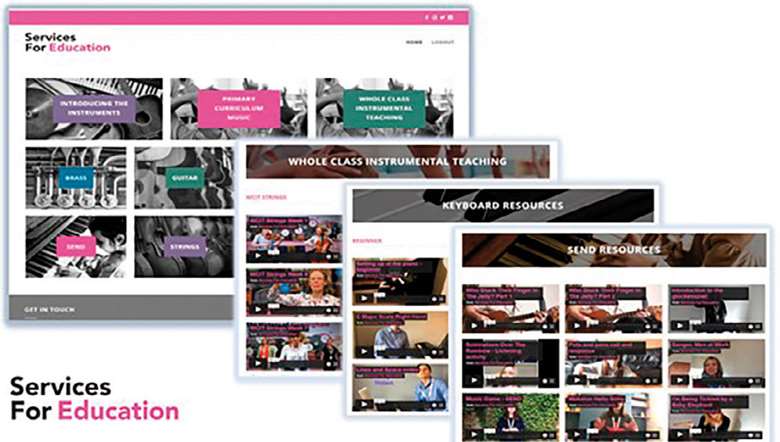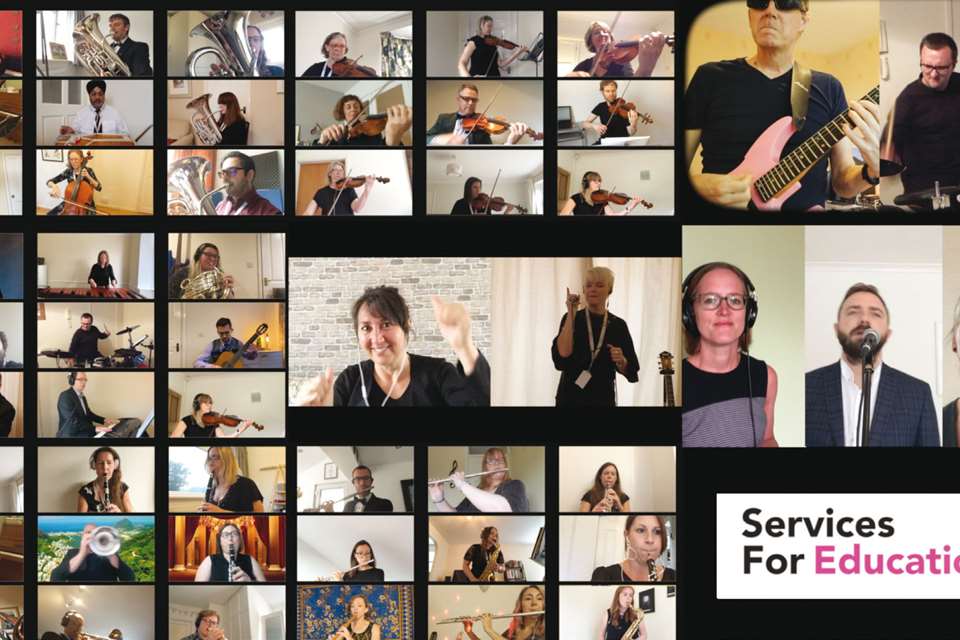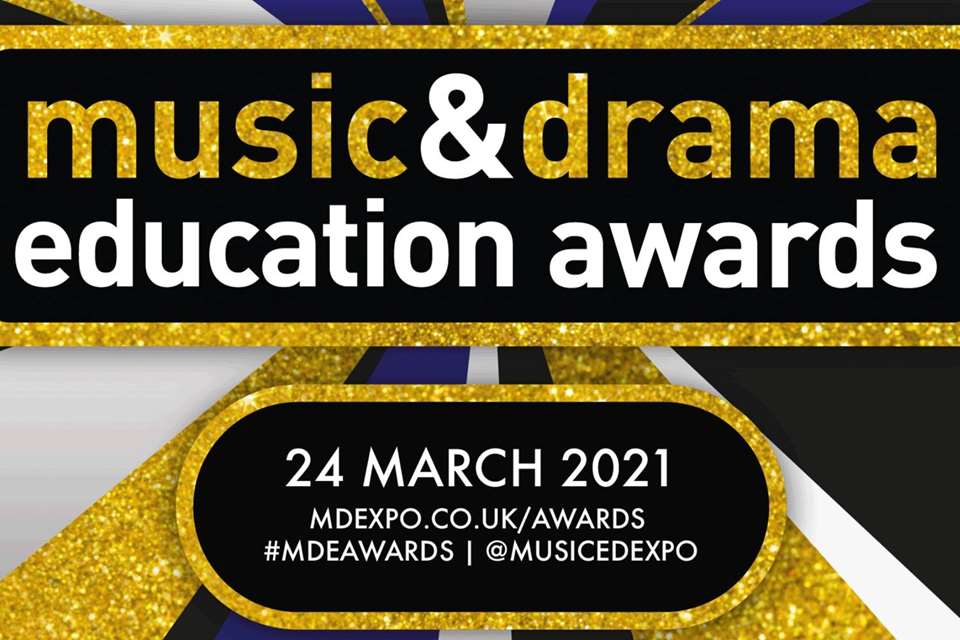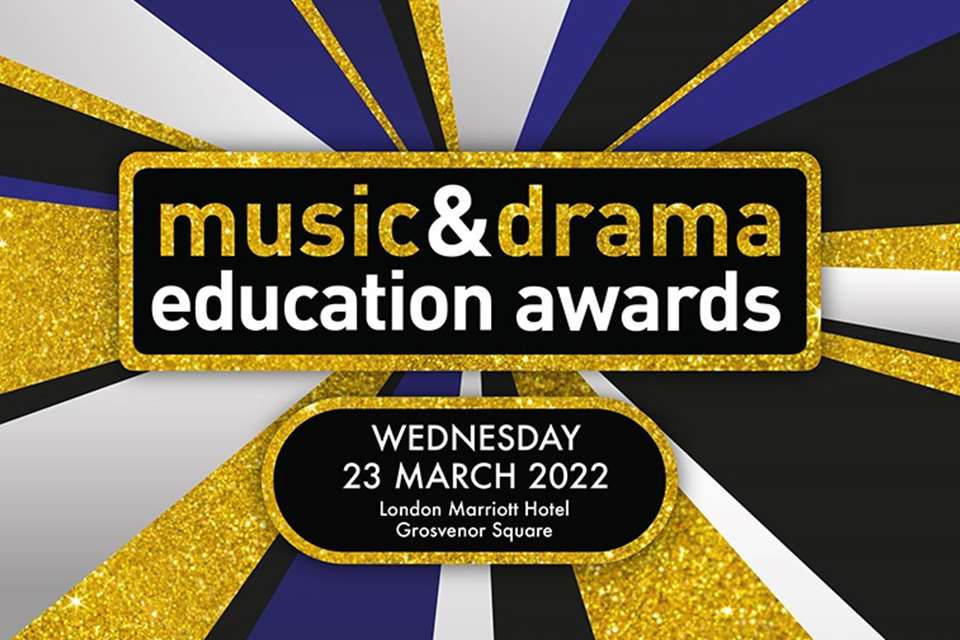Reviews: Services For Education's online resources
Dale Wills
Sunday, August 1, 2021
Dale Wills reviews Services For Education's online resource - winner of Outstanding Music Education Resource in 2020's Music & Drama Education Awards.

Music education is in a state of flux. With many centres not offering dedicated in-house music programming, one solution is to look at centralised ‘hubs’ to provide specialist teaching. One such hub, Services For Education, has been providing a range of classroom, instrumental and school support services in Birmingham and the West Midlands since 2012.
What has made Services For Education particularly noteworthy has been their response to the last 18 months. Their Online Educational Resource is a digital platform which was originally scheduled for release at the end of 2023. In response to the closure of on-site learning, they pushed up the release date to May 2020 and offered the service free to 410 schools across their catchment area. The platform, sfeonline.co.uk, now contains over 800 hours of video tutorials covering everything from classroom singing to instrumental tuition. The content covers an enormous breadth of the primary music curriculum with a fun and engaging style and an easy-to-use plug and play interface. It was recognised as the Outstanding Music Education Resource in 2020's Music & Drama Education Awards.
Introducing instruments
Diving straight in with ‘Introducing musical instruments’, this series comprises 20 videos showcasing individual instruments of the orchestra, together with the most common peripatetic favourites: classical and electric guitar, and ukulele. There are two videos covering dhol drum and tabla, although nothing yet for drum kits, or bass guitar. The resource, however, is in a state of constant expansion. The videos are clearly aimed at encouraging students to take up the instruments in question, and the sales pitch is slick and professional. The audio quality is particularly noteworthy, and the presenters strike a well-pitched balance between entertainment and information. I have even found the videos useful for KS3 revision.
Beginner instrumental lessons
The next video series comprises a series of beginner instrumental lessons: brass, delivered on a range of instruments from trumpet to trombone; guitar, broken down into classical, electric, acoustic, and ukulele; keyboard, with videos in the beginner, intermediate and advanced sections; strings; wind (currently dominated by bassoon); and vocal. This is the fastest expanding area of the site, and I was gratified to see a number of videos added while I was writing this review. The videos are accessible, well presented and provide a useful starting point.
Testing the resource
In order to give this series a proper trial, I decided to pick up a classical guitar – unbelievably – for the first the time in my life. The classical guitar series consists of just over 50 videos, taking the learner through set-up and tuning, how to produce a good tone, and nail care. All of the basics of guitar technique are delivered in engaging five-minute bite sized chunks. The series then moves on to a group of ‘play-along’ lessons, involving taking two or three notes, or a basic riff, which is repeated over a backing track. At this point, I must confess, my guitar-journey began to wane; this felt like a bit of a jump from keeping my nails trimmed!
The final part of the series is made up of ABRSM exam preparation videos. These are a series of two-to-three-minute clips highlighting some of the key issues with individual pieces from the preparatory and Grade 1 lists. Sadly, I didn't come out of this series as a virtuoso classical guitarist, but watch this space! I got the feeling that these would be really useful support for a student taking individual or class lessons. This is not designed to be a stand-alone platform, but as a support mechanism I can see a great deal of value.
SEND resources
The stand-out of this collection, for me, are the beautifully pitched and imaginative SEND resources. In addition to the familiar kinaesthetic games, the series involves djembe, glockenspiel, and guitar. While the videos are well produced and come with the smooth Services For Education presentation, there is a feeling that these would be better as guides for practitioners delivering these sessions in person, rather than as sessions supported in class.
Summary
This leaves us with the inevitable question: is this the future of musical education? In a world of dwindling resources and increasing time pressure on already overloaded curricula, whether this is desirable or not is something of a moot point. Digital teaching is not only here to stay, it's part of the landscape of a whole generation. Whether this will supplant face-to-face teaching in centres is something of a more troubled question. Some of the material Services For Education produces could well take centre stage in classroom learning, and I would not be sorry if it did. There will always be a place for a live pair of ears in a classroom, and I for one am happy to embrace any support I can get, be it digital or on-site.




